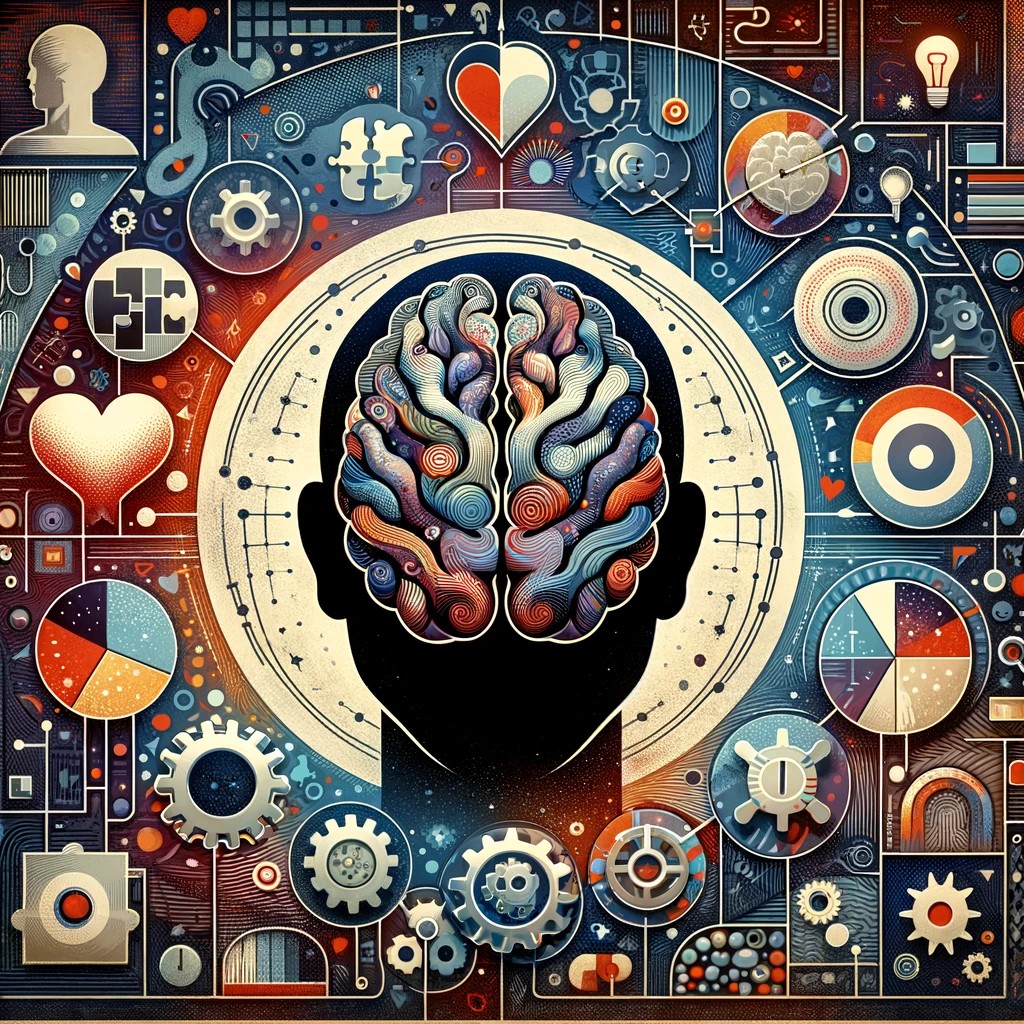Introduction Effective communication and the standardization of terminology are essential for fostering collaboration and advancing knowledge across interdisciplinary fields. This principle holds true in various domains, from the physical sciences to psychology. By ensuring that terms and concepts are clearly defined and universally understood, researchers from diverse disciplines can share knowledge, build upon each other’s work, and foster innovation. The Role of Standardized Terminology When discussing complex scientific concepts such as dark matter, dark energy, and higher-dimensional shapes, having a common language and clear definitions allows for more productive dialogue and collaboration. For instance, redefining “ether” to include both dark matter and dark energy creates a unified framework that facilitates… Read More
Continue ReadingThe Profound Influence of Words: An In-Depth Exploration of Language and Psychology
1. Definitions and Semantics:Words are defined by their meanings and associations, which are established through societal consensus. Semantics, the study of meaning, delves into how words convey complex concepts and emotions. The precision in word choice can dramatically alter the interpretation and impact of a message. Agreement with oneself and with others on these meanings is essential for words to evoke defined feelings, observations, and experiences. 2. Influence on Perception:Language significantly shapes our perceptions of reality. The words we choose can emphasize particular aspects of our environment, influencing how we interpret and understand the world. This concept, known as linguistic relativity, posits that different languages foster different ways of thinking.… Read More
Continue ReadingExecutive Summary: The Psychology of Words and Language
1. Definitions and Semantics:Words are defined by their meanings and associations, which are agreed upon by language users. Semantics, the study of meaning, examines how words convey concepts and emotions. The precise choice of words can drastically alter the interpretation and impact of a message. 2. Influence on Perception:Language shapes our perceptions of the world. The words we use can highlight specific aspects of reality, influencing how we see and understand our environment. This phenomenon, known as linguistic relativity, suggests that different languages can lead to different ways of thinking. 3. Emotional Impact:Words have the power to evoke strong emotions. Positive language can inspire and uplift, while negative language can… Read More
Continue ReadingDefinition of Psychology
Psychology is a fascinating and multifaceted field dedicated to the scientific study of the mind and behavior. It encompasses a broad range of topics, from understanding the biological underpinnings of mental processes to exploring the social and environmental factors that shape human actions. This article provides a detailed definition of psychology, outlining its core principles, goals, history, and various branches. What is Psychology? Definition:Psychology is the scientific discipline concerned with the study of mental functions and behaviors. It involves the systematic investigation of how humans think, feel, and act, both individually and within groups. Psychologists use empirical methods to observe, describe, explain, predict, and sometimes change behaviors and mental processes.… Read More
Continue ReadingWhat is Psychology?
Psychology is a diverse and dynamic field that explores the complexities of the mind and behavior. It is the scientific study of how people think, feel, and act both as individuals and within groups. By employing empirical methods and rigorous scientific inquiry, psychology aims to understand the underlying mechanisms of mental processes and behaviors, predict outcomes, and apply this knowledge to improve individual and societal well-being. Definition of Psychology Psychology is the scientific discipline that seeks to understand and explain thoughts, emotions, and behaviors. It involves the systematic study of the human mind and behavior through observation, experimentation, and analysis. Psychologists investigate a wide range of phenomena, including perception, cognition,… Read More
Continue ReadingIntroduction to Psychology: Understanding the Mind and Behavior
Psychology is the scientific study of the mind and behavior. It encompasses a wide range of topics, from the biological underpinnings of mental processes to the social and environmental factors that influence behavior. This introductory article aims to provide a comprehensive overview of the field, exploring its history, key concepts, and various branches. What is Psychology? Definition:Psychology is the scientific discipline that seeks to understand and explain thoughts, emotions, and behaviors. Psychologists study how people perceive, think, feel, and act both as individuals and within groups. Goals of Psychology: History of Psychology Early Foundations: Major Schools of Thought: Key Concepts in Psychology 1. Biological Basis of Behavior: 2. Developmental Psychology:… Read More
Continue ReadingMental Science
Mental Science is a broad and interdisciplinary field encompassing the study of the mind, its processes, and its influence on behavior, perception, and well-being. This field integrates elements from psychology, neuroscience, philosophy, and even aspects of spirituality, focusing on understanding how mental processes shape our experience of the world and ourselves. Key Concepts: Conclusion: Mental Science offers a comprehensive framework for understanding the complex workings of the mind. By integrating insights from various disciplines, it provides a nuanced view of how mental processes influence our daily lives, behaviors, and overall well-being. The field continues to evolve, incorporating new research findings and methodologies to deepen our understanding of the human mind… Read More
Continue Reading
Psychology
Psychology is a discipline that studies the intricacies of the human mind and behavior. It is a vast field that explores a range of topics from basic neurological processes to complex interactions within societal structures. Key Concepts: Conclusion: The field of psychology provides vital insights into the human condition, offering understanding and solutions to a wide array of mental and behavioral challenges. It enhances our knowledge of how individuals think, feel, and act within different contexts, and its applications have profound impacts on personal development, health, and societal well-being. As a discipline, psychology continues to evolve, integrating new research and methodologies to better comprehend and address the complexities of the… Read More
Continue ReadingPsychology Summary
Psychology is the scientific study of the mind and behavior, encompassing a wide range of topics, including human development, cognition, emotion, motivation, personality, and social interactions. It aims to understand, explain, and predict human thought and behavior. Key aspects of psychology include: In summary, psychology is a diverse field that seeks to understand all aspects of human thought and behavior. It uses scientific methods to study and interpret the complex interplay between mental processes, emotional states, and social environments. The insights gained from psychological research are essential for solving real-world problems and improving the quality of life.
Continue Reading
The Psychology of Righteousness
The psychology of righteousness involves understanding the mindset and motivations behind actions or beliefs that individuals perceive as morally right or just. This concept intersects with moral psychology, ethics, and cognitive processes. Here are some key aspects: In essence, the psychology of righteousness is complex, intertwining moral beliefs, social influences, cognitive processes, and emotional factors. It plays a significant role in shaping behavior, interpersonal relations, and social dynamics. The Definition of Righteousness Righteousness is a moral concept that refers to the quality or state of being morally right or justifiable. It encompasses a range of ethical, moral, and virtuous behaviors that are aligned with accepted standards of morality and justice.… Read More
Continue Reading